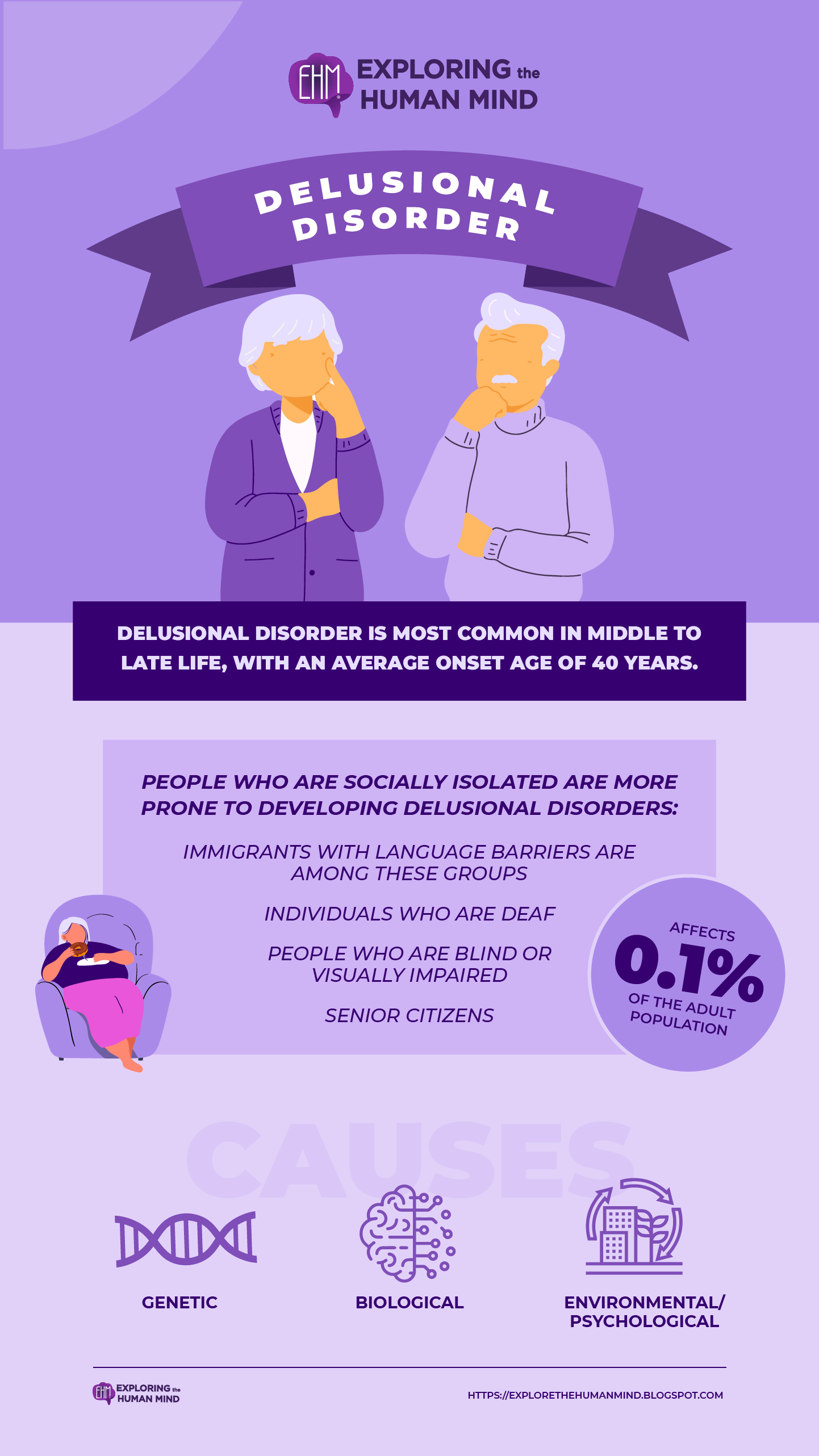Delusional Disorder
A delusion is an unshakeable belief in something that is false. The belief isn't part of the person's culture or subculture, and almost everyone else knows it's false.
Non-bizarre delusions are common in people suffering from delusional disorder and involve situations that could happen in real life, such as being watched, deceived, or loved from afar. These delusions are usually caused by a misunderstanding of perceptions or experiences. In reality, these scenarios are either false or greatly exaggerated.
Delusional disorder is most common in middle to late life, with an average onset age of 40 years.
People who are socially isolated are more prone to developing delusional disorders:
- Immigrants with language barriers are among these groups
- Individuals who are deaf
- People who are blind or visually impaired
- Senior citizens
Although delusions can be a symptom of other disorders, such as schizophrenia, delusional disorder is relatively uncommon. Delusional disorder affects approximately 0.05% to 0.1% of the adult population.

vectors by Freepick; graphic design by Vadot
Symptoms
The most apparent symptom is non-bizarre delusions.
Hallucinations (seeing, hearing, or feeling things that aren't really there) associated with the delusion. Someone who believes they have an odour problem, for example, may detect a foul odour.
As a result of their delusions, people suffering from delusional disorder may experience anxiety and/or depression.
Early symptoms of delusional disorder may include:
- Feelings of being exploited
- Preoccupation with the loyalty or trustworthiness of friends
- A tendency to read threatening meanings into benign remarks or events
- Persistently holding grudges
- A readiness to respond and react to perceived slights
Causes
The exact cause of the delusional disorder, like many other psychotic disorders, is unknown. However, researchers are investigating the role of genetic, biological, environmental, or psychological factors in increasing the likelihood.
- Genetic: The fact that delusional disorder is more common in people who have delusional disorder or schizophrenia in their family suggests that genes may be involved. It is thought that delusional disorder can be passed down from parents to children.
- Biological: Researchers are investigating how delusional disorders can occur when parts of the brain are abnormal. Delusional symptoms may be linked to abnormal brain regions that control perception and thinking.
- Environmental/psychological:There is evidence that stress can cause delusional disorder. Alcohol and drug abuse may also play a role. People who are socially isolated, such as immigrants or those with impaired vision and hearing, appear to be more prone to delusional disorder.
Reference:
Clinic, C. (2022). Delusional Disorder: Causes, Symptoms, Types & Treatment - Cleveland Clinic. Cleveland Clinic. https://my.clevelandclinic.org/health/diseases/9599-delusional-disorder#:~:text=Delusional%20disorder%20is%20a%20type%20of%20psychotic%20disorder.,this%20belief%20to%20be%20false.
WebMD. (2006, February). Delusions and Delusional Disorder. WebMD; WebMD. https://www.webmd.com/schizophrenia/delusional-disorder






Comments
Post a Comment